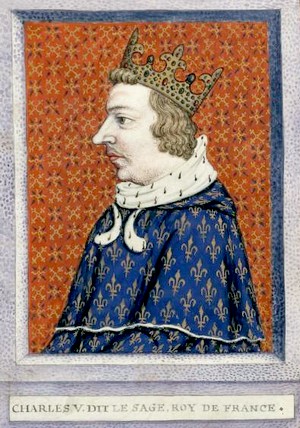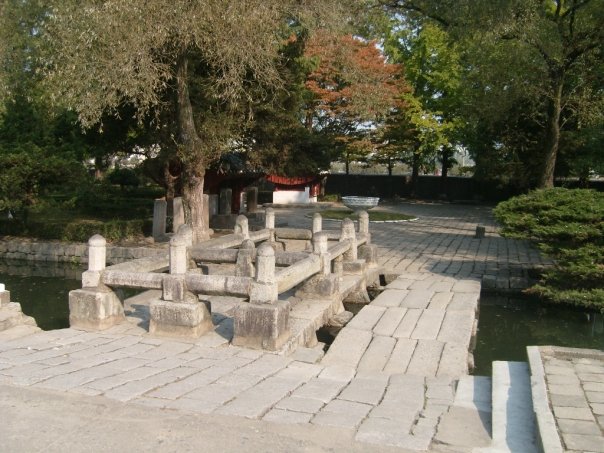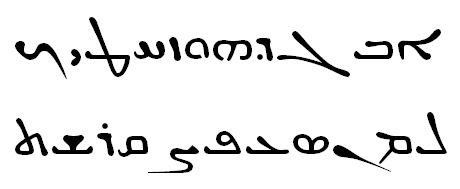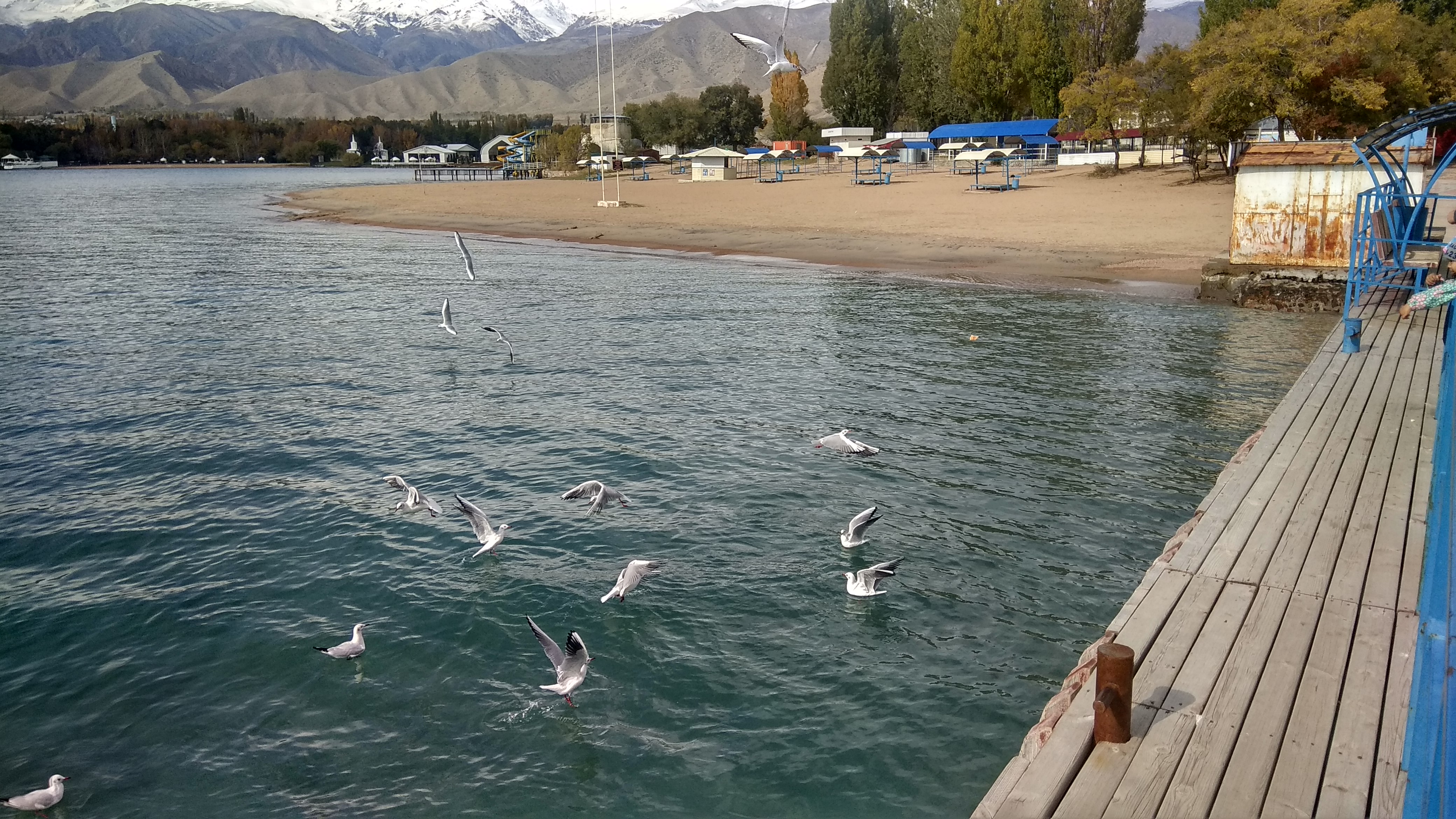|
1338 Births
Year 1338 ( MCCCXXXVIII) was a common year starting on Thursday of the Julian calendar. Events * October 5 – Hundred Years' War, English Channel naval campaign: Southampton is destroyed. Date unknown * Hundred Years' War: Louis IV, Holy Roman Emperor appoints Edward III of England as a vicar-general of the Holy Roman Empire. Louis supports Edward's claim to the French throne, under the terms of the Treaty of Koblenz. * Philip VI of France besieges Guienne in Southwest France, and his navy attacks Portsmouth, England. * Ashikaga Takauji is granted the title of ''shōgun'' by the emperor of Japan, starting the Ashikaga Shogunate. * Nicomedia is captured by the Ottoman Empire. * A Black Death plague strain originates near Lake Issyk-Kul in modern Kyrgyzstan, according to Syriac tombstone inscriptions and genetic material from exhumed bodies. Births * January 13 – Chŏng Mong-ju, Korean civil minister, diplomat and scholar (d. 1392) * January 21 – Charles V of ... [...More Info...] [...Related Items...] OR: [Wikipedia] [Google] [Baidu] |
Roman Numerals
Roman numerals are a numeral system that originated in ancient Rome and remained the usual way of writing numbers throughout Europe well into the Late Middle Ages. Numbers are written with combinations of letters from the Latin alphabet, each with a fixed integer value. The modern style uses only these seven: The use of Roman numerals continued long after the Fall of the Western Roman Empire, decline of the Roman Empire. From the 14th century on, Roman numerals began to be replaced by Arabic numerals; however, this process was gradual, and the use of Roman numerals persisted in various places, including on clock face, clock faces. For instance, on the clock of Big Ben (designed in 1852), the hours from 1 to 12 are written as: The notations and can be read as "one less than five" (4) and "one less than ten" (9), although there is a tradition favouring the representation of "4" as "" on Roman numeral clocks. Other common uses include year numbers on monuments and buildin ... [...More Info...] [...Related Items...] OR: [Wikipedia] [Google] [Baidu] |
Joanna Of Bourbon
Joanna of Bourbon (''Jeanne de Bourbon''; 3 February 1338 – 6 February 1378) was Queen of France by marriage to King Charles V. She acted as his political adviser and was appointed potential regent in case of a minor regency. Life Early life Born in the Château de Vincennes, Joanna was a daughter of Peter I, Duke of Bourbon, and Isabella of Valois, a half-sister of Philip VI of France. From October 1340 through at least 1343, negotiations and treaties were made for Joanna to marry Amadeus VI, Count of Savoy. The goal was to bring Savoy more closely into French influence. Following this, she was betrothed to Humbert, Dauphin of Viennois, which also fell through. Queen On 8 April 1350, Joanna married her cousin, the future Charles V of France, at Tain-l'Hermitage. Since they were first cousins once removed, their marriage required a papal dispensation. Born thirteen days apart, they both were 12 years old. When Charles ascended the throne in 1364, Joanna became q ... [...More Info...] [...Related Items...] OR: [Wikipedia] [Google] [Baidu] |
February 3
Events Pre-1600 * 1047 – Drogo of Hauteville is elected as count of the Apulian Normans during the Norman conquest of Southern Italy. * 1112 – Ramon Berenguer III, Count of Barcelona, and Douce I, Countess of Provence, marry, uniting the fortunes of those two states. * 1451 – Sultan Mehmed II inherits the throne of the Ottoman Empire. * 1488 – Bartolomeu Dias of Portugal lands in Mossel Bay after rounding the Cape of Good Hope, becoming the first known European to travel so far south. * 1509 – The Portuguese navy defeats a joint fleet of the Ottoman Empire, the Republic of Venice, the Sultan of Gujarat, the Mamlûk Burji Sultanate of Egypt, the Zamorin of Calicut, and the Republic of Ragusa at the Battle of Diu in Diu, India. * 1583 – Battle of São Vicente takes place off Portuguese Brazil where three English warships led by navigator Edward Fenton fight off three Spanish galleons sinking one in the process. 1601–1900 ... [...More Info...] [...Related Items...] OR: [Wikipedia] [Google] [Baidu] |
1380
Year 1380 ( MCCCLXXX) was a leap year starting on Sunday of the Julian calendar. Events January–December * February – Olaf II of Denmark also becomes Olaf IV of Norway, with his mother Margrete (Margaret) as regent. Iceland and the Faroe Islands, as parts of Norway, pass under the Danish crown. * March 13 – The southern England town of Winchelsea in East Sussex is attacked and burned by an expeditionary force from France for a second time."Fires, Great", in ''The Insurance Cyclopeadia: Being an Historical Treasury of Events and Circumstances Connected with the Origin and Progress of Insurance'', Cornelius Walford, ed. (C. and E. Layton, 1876) p27 * May 31 – Grand Duke of Lithuania Jogaila signs the secret Treaty of Dovydiškės, with the Teutonic Knights. This sparks a civil war with his uncle Kęstutis. * June 21 – Battle of Chioggia: the Venetian fleet defeats the Genoese. * July 27 – Henry Bolingbroke marries Mary de Bohun a ... [...More Info...] [...Related Items...] OR: [Wikipedia] [Google] [Baidu] |
Charles V Of France
Charles V (21 January 1338 – 16 September 1380), called the Wise (; ), was King of France from 1364 to his death in 1380. His reign marked an early high point for France during the Hundred Years' War as his armies recovered much of the territory held by the English and successfully reversed the military losses of his predecessors. Charles became regent of France when his father John II of France, John II was captured by the English at the Battle of Poitiers in 1356. To pay for the defense of the kingdom, Charles raised taxes. As a result, he faced hostility from the French nobility, nobility, led by Charles II of Navarre, Charles the Bad, List of Navarrese monarchs, King of Navarre; the opposition of the French bourgeoisie, which was channeled through the Estates General (France), Estates-General led by Étienne Marcel; and with a peasant revolt known as the Jacquerie. Charles overcame all of these rebellions, but in order to liberate his father, he had to conclude the Treaty ... [...More Info...] [...Related Items...] OR: [Wikipedia] [Google] [Baidu] |
January 21
Events Pre-1600 * 763 – Following the Battle of Bakhamra between Alids and Abbasids near Kufa, the Alid rebellion ends with the death of Ibrahim, brother of Isa ibn Musa. * 1525 – The Swiss Anabaptist Movement is founded when Conrad Grebel, Felix Manz, George Blaurock, and about a dozen others baptize each other in the home of Manz's mother in Zürich, breaking a thousand-year tradition of church-state union. * 1535 – Following the Affair of the Placards, the French king leads an anti-Protestant procession through Paris. 1601–1900 * 1720 – Sweden and Prussia sign the Treaty of Stockholm. * 1749 – The Teatro Filarmonico in Verona is destroyed by fire, as a result of a torch being left behind in the box of a nobleman after a performance. It is rebuilt in 1754. * 1774 – Abdul Hamid I becomes Sultan of the Ottoman Empire and Caliph of Islam. * 1789 – The first American novel, ''The Power of Sympathy or the Triumph of N ... [...More Info...] [...Related Items...] OR: [Wikipedia] [Google] [Baidu] |
Chŏng Mong-ju
Chŏng Mong-ju (, January 13, 1337 – May 4, 1392), also known by his art name P'oŭn (), was a Korean statesman, diplomat, philosopher, poet, calligrapher and reformist of the Goryeo period. He was a major figure of opposition to the transition from the Goryeo (918–1392) to Joseon (1392–1897) periods. Being the last great personality from the late Goryeo period, exceptional in all aspects of academics, diplomacy, economics, military and politics, and trying to reform Goryeo while maintaining the declining kingdom, he opposed to the Goryeo general Yi Sŏng-gye (the first king of the future Joseon Dynasty) who was a radical revolutionary against the rotten Goryeo Dynasty. Due to his loyalty to Goryeo, Chŏng Mong-ju was eventually assassinated by five men of Yi Pang-wŏn (the fifth son of Yi Sŏng-gye and the third king of Joseon Dynasty). Biography Chŏng Mong-ju was born in Yeongcheon, Gyeongsang Province to a family from the Yeonil Jeong clan (). He was the eldest o ... [...More Info...] [...Related Items...] OR: [Wikipedia] [Google] [Baidu] |
January 13
Events Pre-1600 * 27 BC – Octavian transfers the state to the free disposal of the Roman Senate and the people. He receives Spain, Gaul, and Syria as his province for ten years. * 532 – The Nika riots break out, during the racing season at the Hippodrome in Constantinople, as a result of discontent with the rule of the Emperor Justinian I. * 1435 – '' Sicut Dudum'', forbidding the enslavement by the Spanish of the Guanche natives in Canary Islands who had converted, or were converting to, Christianity, is promulgated by Pope Eugene IV. * 1547 – Henry Howard, Earl of Surrey, is sentenced to death for treason, on the grounds of having quartered his arms to make them similar to those of the King, Henry VIII of England. 1601–1900 * 1793 – Nicolas Jean Hugon de Bassville, representative of Revolutionary France, is lynched by a mob in Rome. * 1797 – French Revolutionary Wars: A naval battle between a French ship of the line and ... [...More Info...] [...Related Items...] OR: [Wikipedia] [Google] [Baidu] |
Syriac Language
The Syriac language ( ; ), also known natively in its spoken form in early Syriac literature as Edessan (), the Mesopotamian language () and Aramaic (), is an Aramaic#Eastern Middle Aramaic, Eastern Middle Aramaic dialect. Classical Syriac is the academic term used to refer to the dialect's literary usage and standardization, distinguishing it from other Aramaic dialects also known as 'Syriac' or 'Syrian'. In its West-Syriac Rite, West-Syriac tradition, Classical Syriac is often known as () or simply , or , while in its East-Syriac Rite, East-Syriac tradition, it is known as () or (). It emerged during the first century AD from a local Eastern Aramaic languages, Eastern Aramaic dialect that was spoken in the ancient region of Osroene, centered in the city of Edessa. During the Early Christian period, it became the main literary language of various Aramaic-speaking Christian communities in the historical region of Syria (region), Ancient Syria and throughout the Near East. As ... [...More Info...] [...Related Items...] OR: [Wikipedia] [Google] [Baidu] |
Kyrgyzstan
Kyrgyzstan, officially the Kyrgyz Republic, is a landlocked country in Central Asia lying in the Tian Shan and Pamir Mountains, Pamir mountain ranges. Bishkek is the Capital city, capital and List of cities in Kyrgyzstan, largest city. Kyrgyzstan is bordered by Kazakhstan to the Kazakhstan–Kyrgyzstan border, north, Uzbekistan to the Kyrgyzstan–Uzbekistan border, west, Tajikistan to the Kyrgyzstan–Tajikistan border, south, and China to the China–Kyrgyzstan border, east and southeast. Ethnic Kyrgyz people, Kyrgyz make up the majority of the country's over 7 million people, followed by significant minorities of Uzbeks and Russians. Kyrgyzstan's history spans a variety of cultures and empires. Although geographically isolated by its highly mountainous terrain, Kyrgyzstan has been at the crossroads of several great civilizations as part of the Silk Road along with other commercial routes. Inhabited by a succession of tribes and clans, Kyrgyzstan has periodically fallen unde ... [...More Info...] [...Related Items...] OR: [Wikipedia] [Google] [Baidu] |
Lake Issyk-Kul
Issyk-Kul () or Ysyk-Köl (, ; ) is an endorheic saline lake in the western Tianshan Mountains in eastern Kyrgyzstan, just south of a dividing range separating Kyrgyzstan from Kazakhstan. It is the eighth-deepest lake in the world, the eleventh-largest lake in the world by volume (though not in surface area), the deepest lake whose deepest point is above sea level (939 meters or 3,080 feet), and the third-largest saline lake. Although it is located at a lofty elevation of and subject to severe cold during winter, it rarely freezes over due to high salinity, hence its name, which in the Kyrgyz language means "warm lake". The lake is a Ramsar site of globally significant biodiversity and forms part of the Issyk-Kul Biosphere Reserve. Geography Issyk-Kul Lake is long, up to wide and its surface area is . It is the second-largest mountain lake in the world behind Lake Titicaca in South America. It is at an altitude of and reaches in depth. About 118 rivers and streams fl ... [...More Info...] [...Related Items...] OR: [Wikipedia] [Google] [Baidu] |




